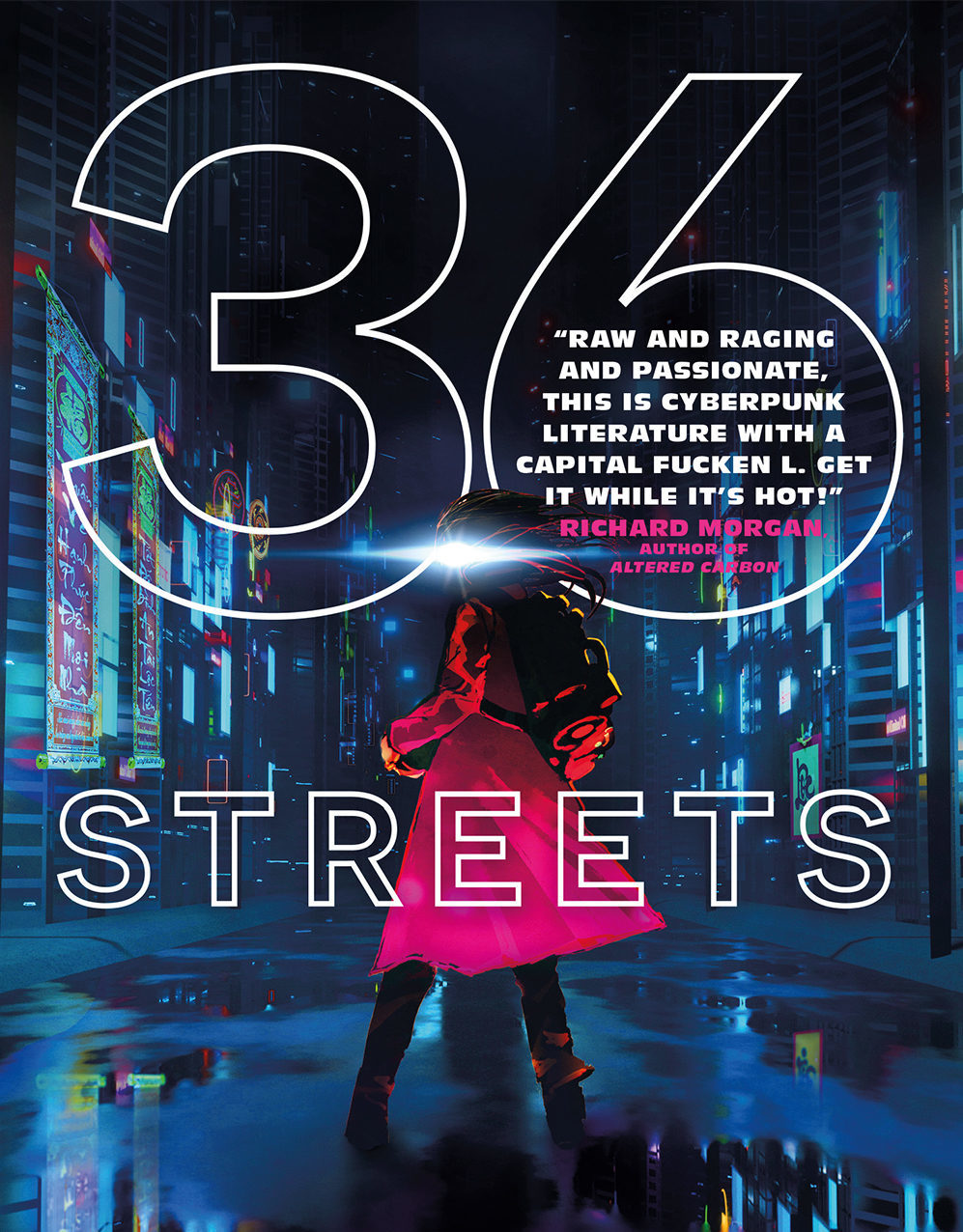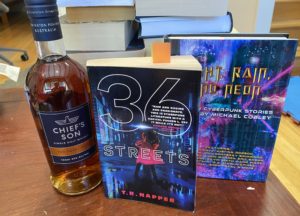Ditmar voting is open. For the uninitiated, the Ditmars are the annual Australian peer-voted awards for Science Fiction, Fantasy, and Horror.
What does peer-voted mean? Well, that you are either attending the National Convention (this year it is Conflux – in my home town of Canberra), or that you are ‘active in fandom’. What does the latter mean? As I understand it: you’ve been to a convention in Australia, are in a discussion group (online or live), 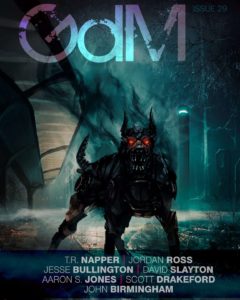 interact regularly on social media, or simply a fan of Australian speculative fiction. Which is to say, it’s very broad. If you are new to voting in the Ditmars, feel free to nominate me as a ‘referee’
interact regularly on social media, or simply a fan of Australian speculative fiction. Which is to say, it’s very broad. If you are new to voting in the Ditmars, feel free to nominate me as a ‘referee’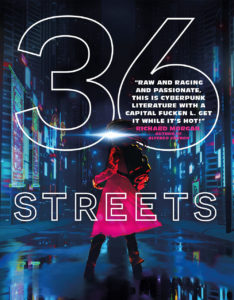 (this aspect will be clear once you’ve seen the voting form). Note that voting closes on August 14.
(this aspect will be clear once you’ve seen the voting form). Note that voting closes on August 14.
Okay, enough preamble. I had three works published last year that I am very proud of – if you’d read and enjoyed them, I’d appreciate your vote, at this link.
Of those three, the most important, by far, was my debut novel, 36 Streets (2022)(Titan Books UK). It came out to pretty much universal praise from readers and reviewers, which was a huge relief. I’ve included some of those praise quotes at the bottom of this article. The book also, I should add, recently won the Aurealis Award for Best Science Fiction Novel. I was, as you may imagine, ecstatic on the night.
Grimdark Magazine (Australia) published my novelette, The Shapes of Our Fever, with some excellent cover art, in issue #29 of their magazine, and NewCon Press (UK) published another novelette, The Goruden-Mairu Job in their cyberpunk anthology, “Night, Rain, and Neon”. The Goruden-Mairu Job managed to get short-listed in the Best Novelette/Novella category of the Aurealis Awards.
NewCon Press (UK) published another novelette, The Goruden-Mairu Job in their cyberpunk anthology, “Night, Rain, and Neon”. The Goruden-Mairu Job managed to get short-listed in the Best Novelette/Novella category of the Aurealis Awards.
 Finally, it would be remiss of me to discuss only my own work. I’ve not read enough spec-fic by Australian authors over the past year, but one I did read was Cut to Care (2022), the collected short stories of Aaron Dries. I’m not normally one for horror, but Aaron’s collection was very good.
Finally, it would be remiss of me to discuss only my own work. I’ve not read enough spec-fic by Australian authors over the past year, but one I did read was Cut to Care (2022), the collected short stories of Aaron Dries. I’m not normally one for horror, but Aaron’s collection was very good.
Praise for 36 Streets
“Quintessential cyberpunk, hard-nosed, sharp edged and gleaming.” Adrian Tchaikovsky, (author of Children of Time)
“Intricately plotted, using advanced biotechnology, a close investigation into Vietnamese history and culture, and a hard-edged, complicated lead character, Napper’s fine first novel will draw in cyberpunk readers.” – Booklist
“A gripping near-future cyberthriller… Napper drives the brisk plot forward with plenty of action and intrigue. Cyberpunk fans will find much to enjoy in the noir tone, unique setting, and high stakes.” – Publishers Weekly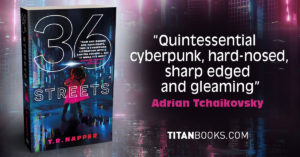
“[36 Streets] has things both novel and serious to say about the psychological effects of intrusive media. This is a kick-the-door-down account of how past traumas — personal and national — may one day be weaponised for social control.”— The Sunday Times
“Brutal, brooding, brilliant . . . an angry vision of violence wrapped around a complex meditation of memory, trauma and hegemony. This is cyberpunk with soul.
Street crime and resistance; nihilism and heroism; sinners and saviours; tiny Vietnam and the all-devouring empires that have hounded it; turn this book this way and that and these opposites meld and merge and flash bloody smiles at you, like the edges of a single perfect blade, with Napper’s hand on the hilt.” Yudhanjaya Wijeratne (author of Salvage Crew)
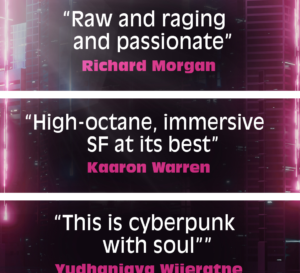 “Napper has created an instant classic of the cyberpunk genre, and shown just how vital and incisive the genre can be.” Jonathan Thornton at Fantasy Hive.
“Napper has created an instant classic of the cyberpunk genre, and shown just how vital and incisive the genre can be.” Jonathan Thornton at Fantasy Hive.
“A couple of years ago, I said I couldn’t wait to see where Tim Napper’s science fiction would take me next. Turns out, it was worth the wait. 36 Streets glows bright and and hallucinatory as tropical neon, goes down smooth as warm sake, cuts deep as a nano-steel blade. Once again, Napper honours classic cyberpunk with fresh perspectives and hot genre recombinations, a nasty new future gleam, the proverbial new coat of paint. But there are more austere echoes here too, of Graham Greene and Kazuo Ishiguro, of a whole post-colonial literary heritage banging to be let in.
In a genre stuffed with facile hero narratives, 36 Streets consistently chooses something else – messy humanity, grey moral tones and choices, hard-edged geopolitical truth. Lin Thi Vu stalks the mean streets of a Chinese-occupied Hanoi, pure heir to a cyberpunk ancestry stretching right back to Molly Millions, but the ghosts and global contexts that haunt her add whole other dimensions to the form. She’ll carve her way deep into your heart, and then she’ll break it in two. Raw and raging and passionate, this is cyberpunk literature with a capital fucken L. Get it while it’s hot!” Richard Morgan (author of Altered Carbon)
